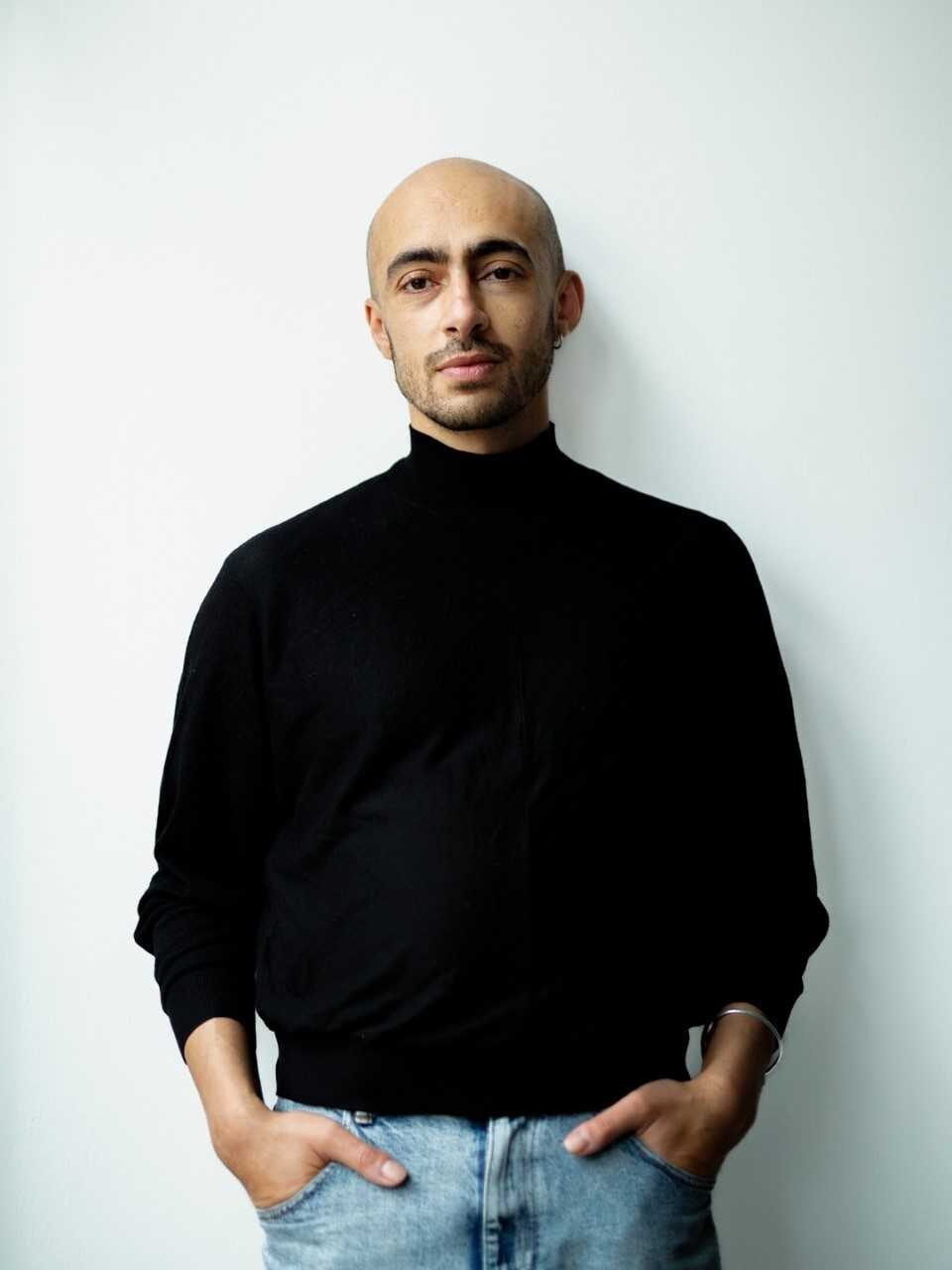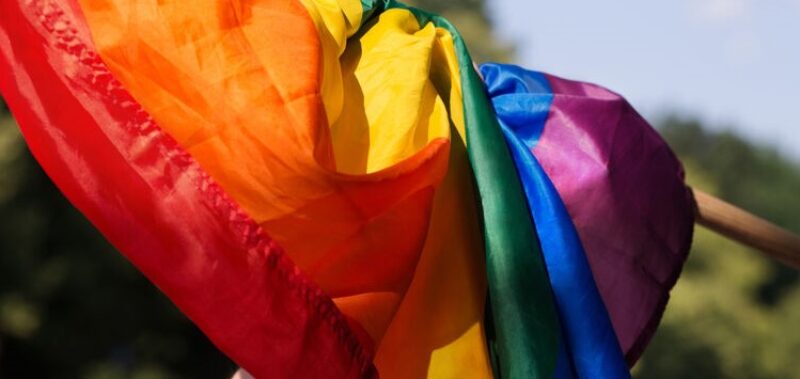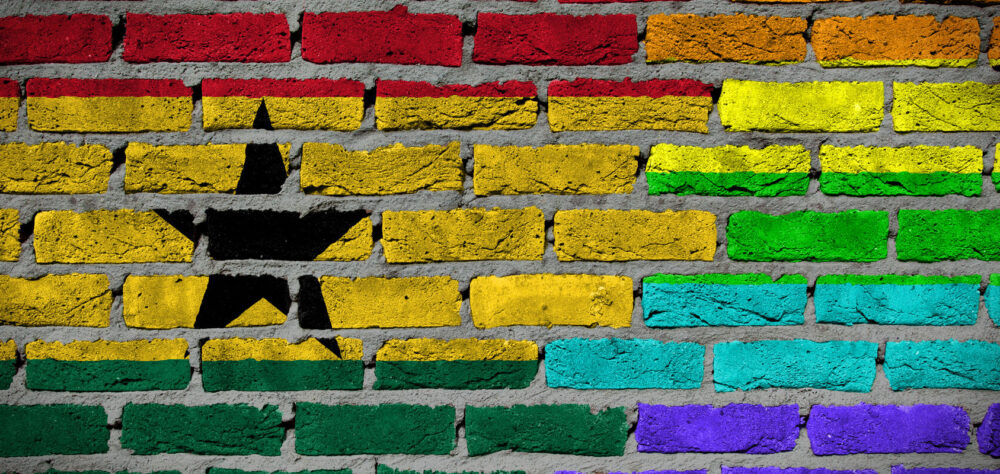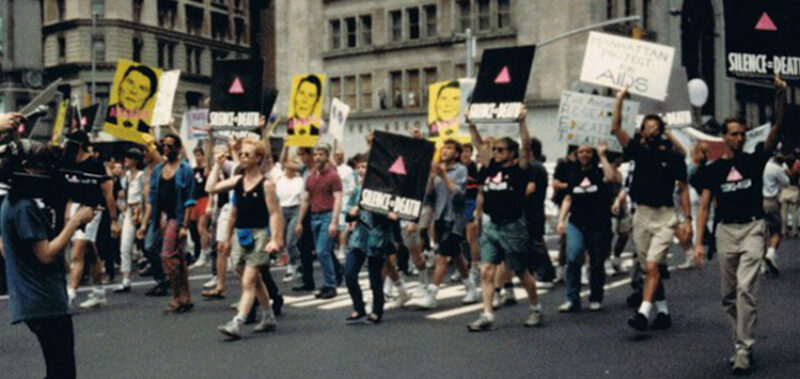Against The Stream: Lessons From Not Passing
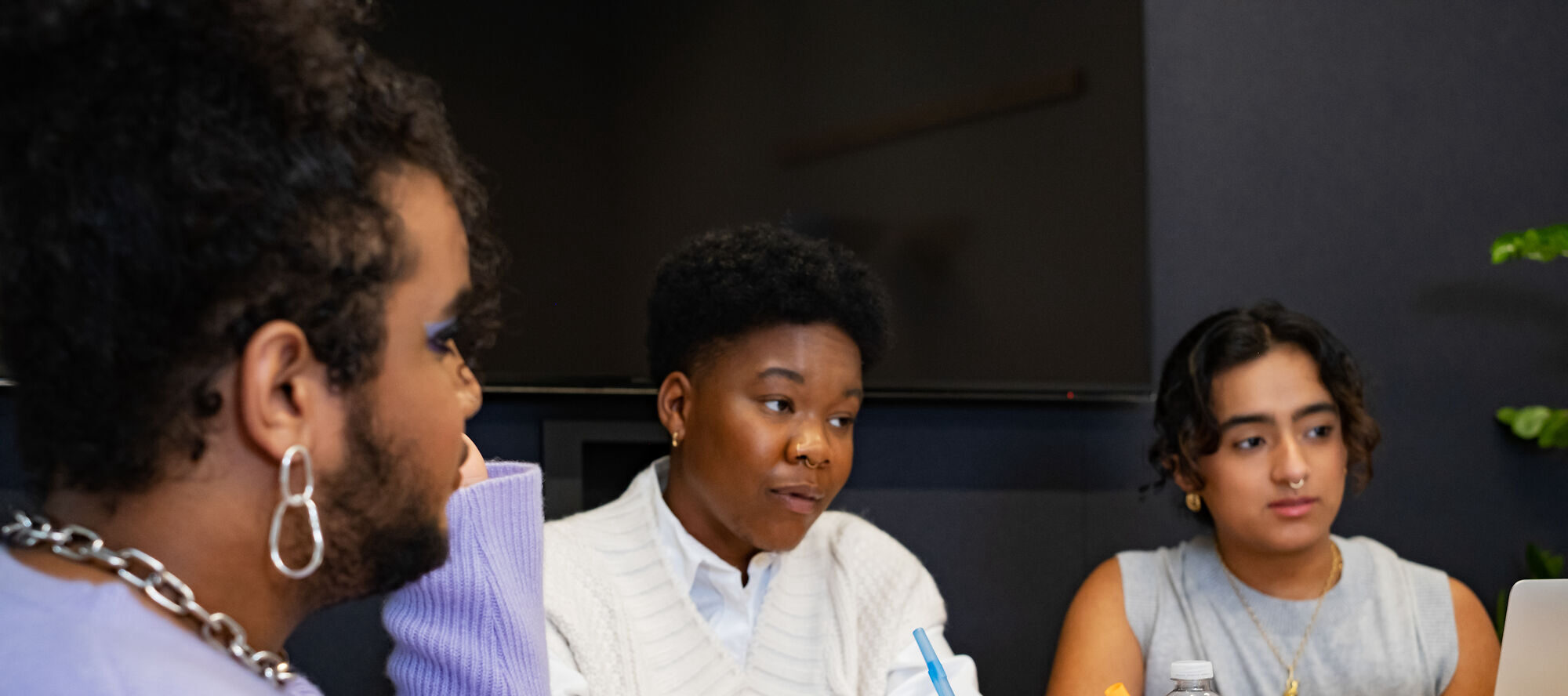
Ahmed Awadalla reflects on the concept of „passing“ and its intersections with identity, acceptance and belonging.
In a workshop, all questions are allowed, but this one caught me off guard.
As a sex educator, I’ve had the privilege of giving workshops to a diverse range of groups, mostly youth and teenagers. A few years ago, I found myself in a unique setting: a refugee camp in Berlin. During my time with Berliner Aids-Hilfe, I coordinated a project called Safer Welcome. Our goal was to create a safe and welcoming space for young refugees and asylum seekers to access sexual health information and have their questions answered.
The questions from young people were as varied as their backgrounds. They asked about everything: masturbation, flirting, condoms, virginity—you name it. Each question was a window into their world, their curiosity, and their desire to understand their bodies and relationships better.
Why do some of the Germans stare at us in a negative, hateful way?
Young man participating at a workshop on sex education
But then, in one of those workshops, a question came up that truly caught me off guard. A young man seemed hesitant, and I tried to encourage him. He finally asked, „Why do some of the Germans stare at us in a negative, hateful way?“ I looked around and saw curious eyes; others were nodding as if they shared the same question. I was taken aback. How do you answer this in a tactful way? How do you explain the harsh reality of racism to teenagers? How do you explain to them that they didn’t “pass” in their new home?
The term „passing“ refers to a person’s ability to be regarded as a member of an identity group or category different from their own. In conversations around racism, white-passing refers to a person of mixed or racialized heritage being perceived as white by others. This can occur due to physical appearance, mannerisms, or cultural assimilation, and it often allows individuals to navigate social, economic, or political spaces with the privileges typically afforded to white people. Obviously, in Western countries, many people of color cannot “pass” because of their appearance, names, or the way they carry themselves.
Passing is often used in the context of gender and sexuality. In the trans community context, „passing“ refers to a transgender person’s ability to be perceived by others as their true gender rather than the sex they were assigned at birth. This might involve conforming to societal norms of gender expression, such as appearance, voice, and mannerisms, to avoid being misgendered or facing discrimination. This concept can also be applied to other aspects of life-including sexuality.
Growing up queer was quite a journey for me. When people talk about coming out of the closet, I find it somewhat funny. As a queer kid in a small town in Egypt, staying hidden wasn’t really an option—I stood out, and that brought consequences. I was often told to act more like a man. Especially when I hit puberty—a life phase that can be one of the most challenging times for everyone. Your body is changing, and many of us are not prepared for this. Even if we are, the turmoil in emotions can be overwhelming. We are confused, and we need validation and support.
Sports fields are also places where gender can be strictly and violently policed.
Ahmed Awadalla
I vividly remember my experience during my first football game at school. My hairless body, my awkward performance, and my precociousness made me seen as feminine. Being feminine made me both objectionable and desirable to the other boys. I was subject to their bullying and sexual harassment. I was assigned a sexuality before I even understood my sexuality.
Sports fields are also places where gender can be strictly and violently policed. They can be spaces of discomfort for those who stray from prescribed gender paths. In my school, boys were allowed to play certain sports like football and basketball, but girls were allowed to play tennis and sometimes gymnastics. The clothes fit differently; boys could wear loose outfits, while girls were expected to cover up their skin or wear tights if modesty wasn’t expected. Girls were treated as sexual objects from early on.
Many queer people modulate themselves to fit their surroundings. They change how they walked, how they talked, they dressed in certain ways, they chose to present themselves as straight or bisexual—they were trying to pass. I understand why. There are good reasons not to want to stand out because you can be rejected, excluded, and assaulted. Because you want to be accepted and loved, even if it means disavowing parts of oneself. Sometimes this dynamic works on a much deeper unconscious level. Societal pressure can influence individuals to conform to heterosexual norms and relationships, regardless of their actual sexual orientation.
The feminist author Adrienne Rich taught us about the concept of compulsory heterosexuality. She argued that heterosexuality is not merely a sexual preference but a political institution that maintains male dominance and marginalizes other sexualities. Being straight can be seen then as an attempt to pass into an easier, more understandable life.
I realized that I couldn’t conform or pass as society expected, and I think I embraced that. Instead of trying to pass, I chose to question the box and try to expand the framework. Working in sexual health was a reflection of this. It was considered taboo, a choice not well understood by others, who often felt it was too unconventional. But for me, it was about empowering people who felt that can’t belong in their surroundings. It was about advocating different policies and approaches that create inclusive and just communities.
Being queer can sometimes feel like a fish swimming against the stream. I tried to make the best out of knowing that I would not pass.
There are good reasons not to want to stand out because you can be rejected, excluded, and assaulted.
Ahmed Awadalla
But gender and sexuality aren’t the only ways we can be categorized and labeled. Confronting racial difference didn’t factor in until later in life when I moved to Germany. It’s always a privileged position not to have to question one’s place. Belonging to a majority means not being personally affected and can lead to overlooking the power dynamics that shape others‘ lives. Moving to Germany forced me to confront racial difference more profoundly.
The boy’s question at the workshop brought back memories of my early life in Berlin. I was very conscious of my differences. The stares on the street and the U-Bahn weighed heavily on me. Simple interactions were made unnecessarily cumbersome. Berlin’s blunt and unpolished interactions were a shock to my system (they still can be jarring even today).
One day, a group of men rounded on me and said that I must be one of those who came by boat because of Merkel. I was shocked. I wanted to say that I came by plane and that it was me not Merkel, who made it happen, but I didn’t think they would find this amusing or enlightening. This kind of Being perceived through a lens of prejudice was strange. My identity and journey were reduced to simplistic stereotypes. Navigating this kind of tensions in everyday interactions is an integral part of life for a person of color in Western society, and this leaves a lasting impact on how I perceive myself and others in society.
Berlin is also a queer haven, and I sought out queer spaces where I could finally let my guard down. Initially, it felt liberating. However, this newfound freedom soon revealed a different type of othering—sexual racism. Being objectified as a fetish without genuine connection was disheartening. I also encountered positive racism, where compliments subtly reinforced stereotypes with phrases like, „But you are civilized,“ or „You are smart, you are not like the other migrants.“ This mix of liberation and subtle prejudice created a complex, often uncomfortable experience.
By standing out, we make it possible for others to see that difference is not something to be feared or erased, but something to be celebrated.
Ahmed Awadalla
It has taken years to process how racism has impacted my life in Germany. Racism manifests in many forms, from overt violence and slurs to more insidious and dangerous aspects that are invisible. It plays out like an infantilization—being treated as less capable or informed, akin to the gendered dynamics of mansplaining. It creates pressure to be flawless in relationships, at work, and in other areas of life. I find myself judged more harshly for the same errors and rarely afforded the benefit of the doubt.
Being a queer person of color, I often felt a constant negotiation of identity. I often felt the need to censor part of myself to fit in. As much as passing wasn’t already an option for me as a queer person, I couldn’t pass as a person of color in a white majority society. Fortunately, Berlin hosts a thriving queer of color scene, continually expanding safe spaces where individuals needn’t compromise their identities to belong. These spaces are vital, deserving of support and empowerment.
Living through these experiences has been eye-opening, challenging my understanding of identity, acceptance, and belonging in profound ways. It’s a journey of self-discovery amidst societal pressures and personal growth, where every step forward is a testament to resilience and the pursuit of authentic living. A friend once told me, “only dead fish go along with the stream.”
Returning to the question that caught me off guard at the workshop: it triggered many of these complex themes. I felt the young man was seeking the same validation and understanding I had sought all my life. In answering him, I drew on my own journey of navigating identity and belonging.
Sometimes, people fear what they do not understand. It’s not a reflection of one’s worth but of their ignorance. We can respond to these forms of discrimination in many ways—calling out, confrontation, or opting for silence and avoidance. But at the end of the day, having a supportive community and true allies is what matters.
Not passing and not assimilating can be acts of resistance. They allow us to question and expand the frameworks that confine us, they can help us push back against the pressure to conform. This open up a deeper understanding of ourselves and a stronger sense of community with others who share our experiences.
By standing out, we make it possible for others to see that difference is not something to be feared or erased, but something to be celebrated.
Diesen Beitrag teilen
